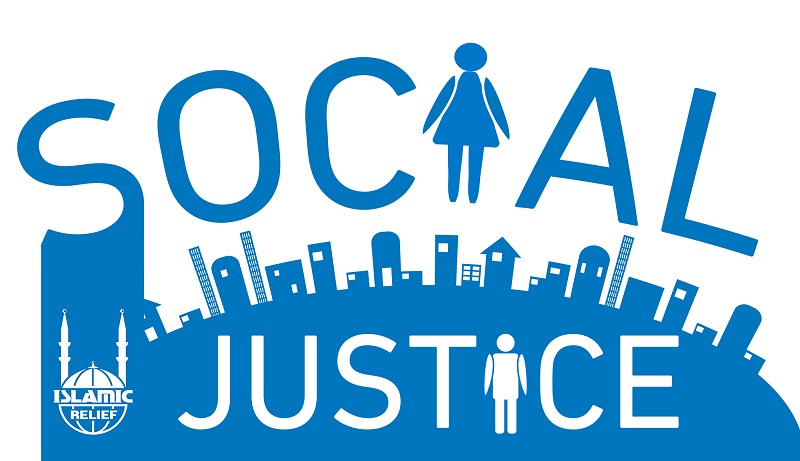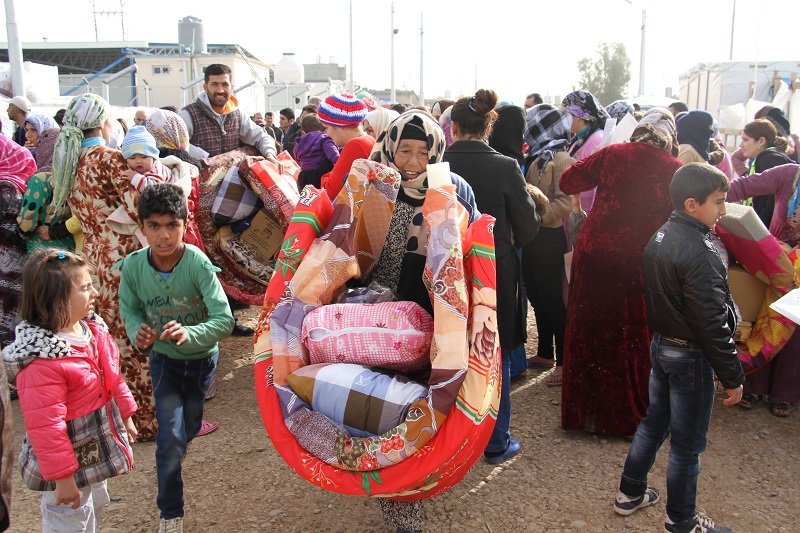Firas Abdul-Khalik, an aid worker with Islamic Relief’s Baghdad office, reflects on the human consequences of conflict in Iraq – and our efforts to end deepening social injustice.

The current crisis began in late 2013, when tensions escalated into armed clashes in Anbar governorate. Hundreds of thousands fled, seeking safety elsewhere. Today, some 96,000 Anbar families are thought to be displaced. In 2014, fighting erupted in the northern city of Mosul and spread to other areas, triggering further mass displacement. It is thought that up to three million people are now internally displaced within Iraq.
Conflict saps the resilience of vulnerable people
The conflict has further strained the resources and resilience of vulnerable people. Some have seen loved ones killed or kidnapped. Others have lost their homes and belongings. Many are grappling with the impact of their traumatic experiences.
Everyone has a story to tell. I spoke to an elderly man who fled Anbar. To reach Baghdad, he and his four daughters had to pass through informal checkpoints set up by armed groups. The fear they felt on the journey, he told me, has left his family feeling constantly on edge and two of his daughters now experience panic attacks.
As coordinator for Islamic Relief’s UNHCR projects, I work with displaced families and I see how the protracted insecurity has affected every aspect of their lives. Many have been displaced for over a year. Unable now to earn a reliable living, they are without sufficient food or adequate shelter – the most basic of human needs.
The situation is hardest for those displaced families living in unsafe areas, where they can be caught up more easily in the conflict. The polarisation of society in Iraq means that their plight is often overlooked, their voices seldom heard. Deteriorating security has impeded the establishment of much-needed humanitarian safe areas.

Meeting basic needs and protecting human dignity
Islamic Relief, which has served vulnerable people in Iraq for almost two decades, is working through its emergency response to improve social justice. Targeting the most vulnerable people, our humanitarian aid helps them to meet their basic needs and protect their dignity.
We work closely with beneficiaries, to make sure we are guided by their needs. We are also incorporating psychosocial support into our aid programme, to help conflict-affected people come to terms with all they have experienced.
Our work is vital. With God’s help, we are providing food, shelter, clothing and warmth to thousands of people who may otherwise have nothing. We are serving as a platform from which the voices of vulnerable people can be heard – not as figures on a spreadsheet or a faceless mass in a news story, but as dignified human beings.
This World Day of Social Justice, you too can play your part in ensuring conflict-affected people in Iraq can maintain their dignity. You too can help prevent ever-deepening social injustice. Donate to our Iraq emergency appeal today.
Donate









